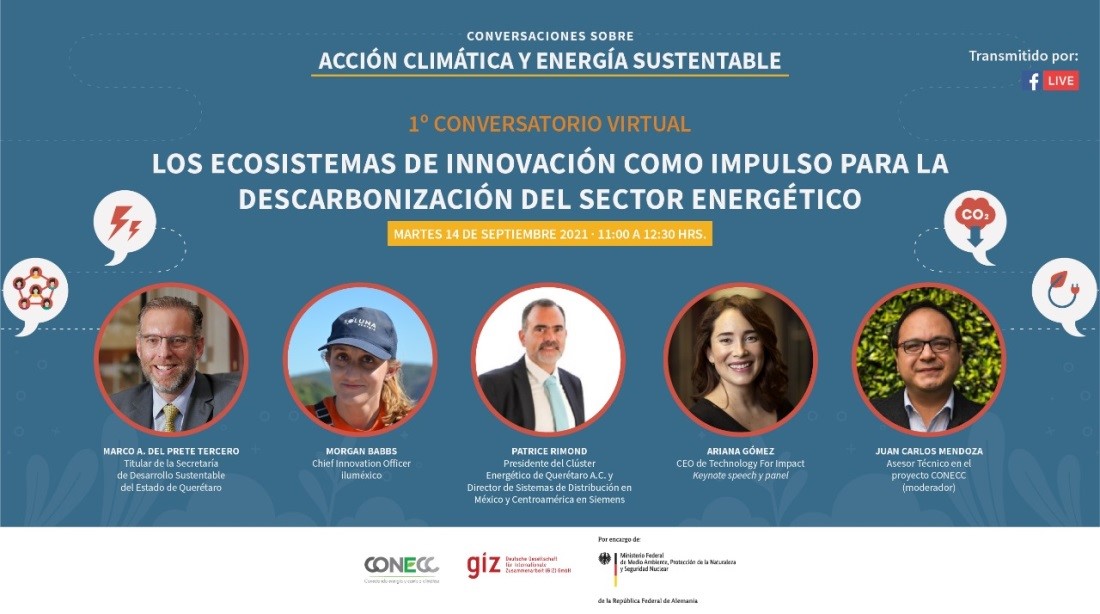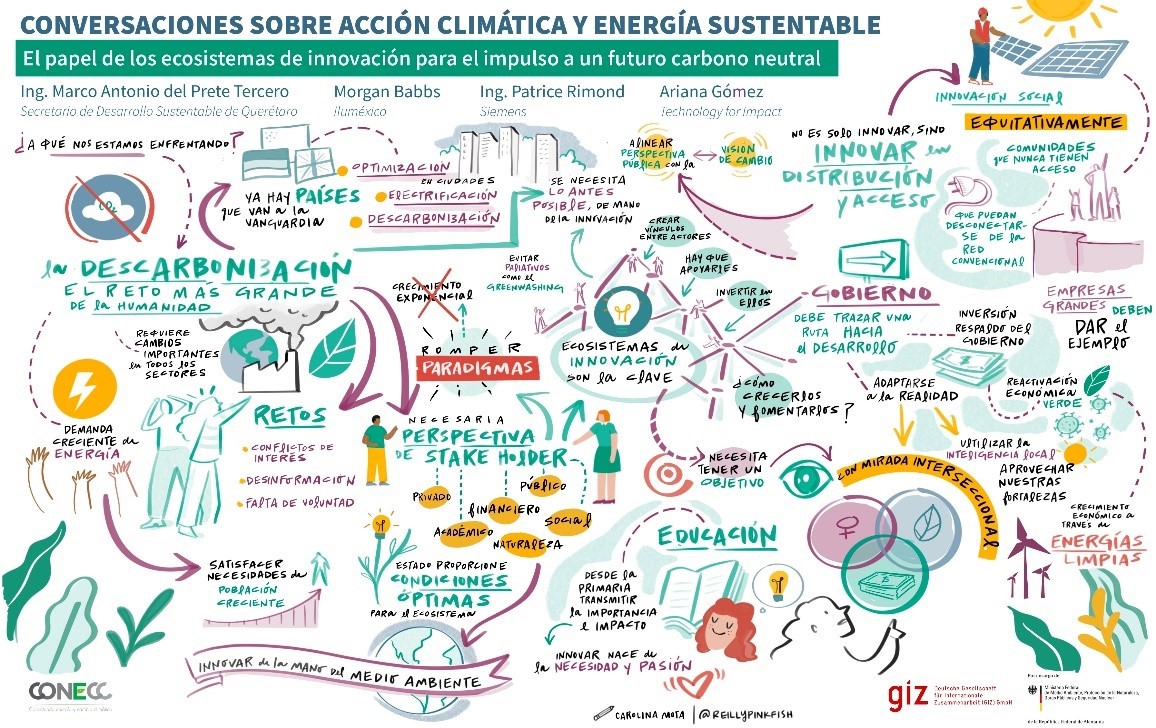Solving and dealing with the climate crisis will require the joint work of various actors and sectors of the economy. Within these, innovation ecosystems are key communities to provide the conditions that favour the co-creation of disruptive solutions to climate change and the acceleration of efforts to reduce GHG emissions, aiming towards a carbon neutral future.
Technological innovation and entrepreneurship are undoubtedly ways to advance along this route. Innovation is not only considered as part of the set of effective global responses to the mitigation efforts of the following years (IPCC, 2021); it has also been positioned as a driving force to trigger processes of social, economic and environmental transformation. As well as guiding productivity, competitiveness and economic development, it is also a way to promote jobs, the survival and growth of SMEs and local value chains, among other benefits. Innovation is consequently a process to promote sustainable development and green and inclusive growth.
The Enhancing the Coherence of Climate and Energy Policies in Mexico (CONECC) project, within the framework of the series “Conversations for Climate Action and Sustainable Energy” carried out a First Virtual Conversation entitled: “Innovation ecosystems as an impetus for decarbonisation of the energy sector.” The event aimed to provide a digital space for national and international actors who actively take part in innovation ecosystems and in the climate change and energy sector. The aim was to exchange experiences and practices on those critical factors that will use the potential of entrepreneurship to contribute to a carbon-neutral economic growth based on innovation.

The event began with words of welcome from the coordinator of the Climate Change and Energy Cluster of GIZ Mexico, Philipp Schukat, and the Secretary for Sustainable Development of Querétaro (SEDESU), Marco A. del Prete, who highlighted the joint effort of GIZ and SEDESU to promote local sustainable development and to strengthen innovation ecosystems, for example through a Technological Innovation Hub oriented to climate action in the state (HUBIQ A.C.).
Later, Ariana Gómez, CEO at Technology for Impact, presented a keynote speech in which she provided context on how to approach climate change from an innovation perspective, as well as the challenges and opportunities that it provides. The central panel of the multisectoral conversation included the participation of the Undersecretary of the Environment of Querétaro, Ricardo Torres; Patrice Rimond, President of the Queretaro Energy Cluster and Director of Distribution Systems in Mexico and Central America at Siemens; Ariana Gómez and Morgan Babbs, Chief Innovation Officer at iluméxico. Each participant shared different perspectives regarding how innovation can strengthen business models, decarbonise the energy sector, and deliver social benefits.
The panellists agreed that technology is a tool that helps to achieve Mexican and global climate objectives, without ignoring the multiple social effects that it entails. In addition, the discussion focused its attention on the elements that can enable innovation ecosystems that place a central value proposition in connecting their actors, through the promotion of entrepreneurship, regulatory and public policy conditions, access to financing for innovation, and the participation of companies and research institutions, among other key factors.

“The father and mother of innovation are necessity and passion”
Mtra. Ariana Gómez
At CONECC, we believe that technological innovation is a catalyst to achieve sustainable development and climate action, and that innovation ecosystems play a very important role in achieving this goal. The actions of international cooperation for development to promote formats that foster innovation can be firm steps in the move towards a decarbonisation of the energy sector with high local content. We hope that this discussion has created a spark of change in its participants. The discussion reached over 400 views and an attendance of more than 70 people. You can consult the recording in the following link: First Virtual Conversation: Technological innovation for the Decarbonisation of the Energy Sector.
